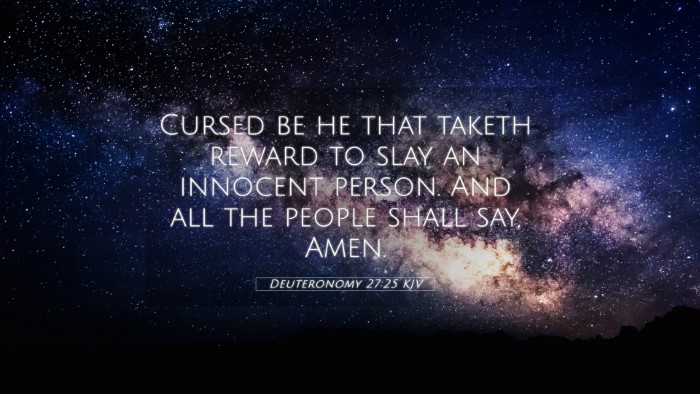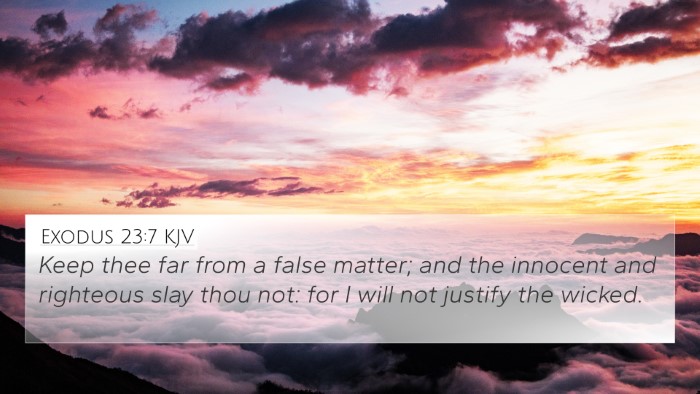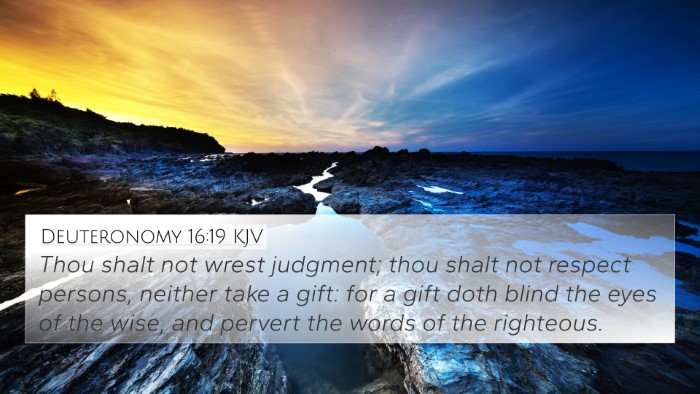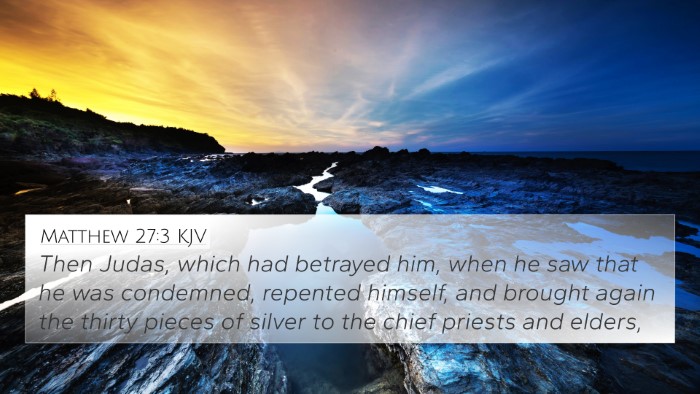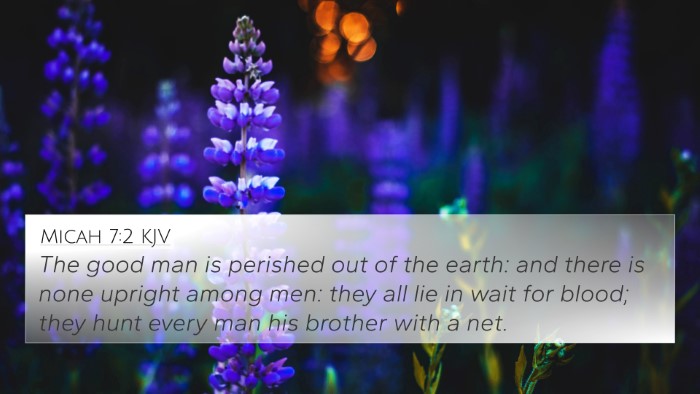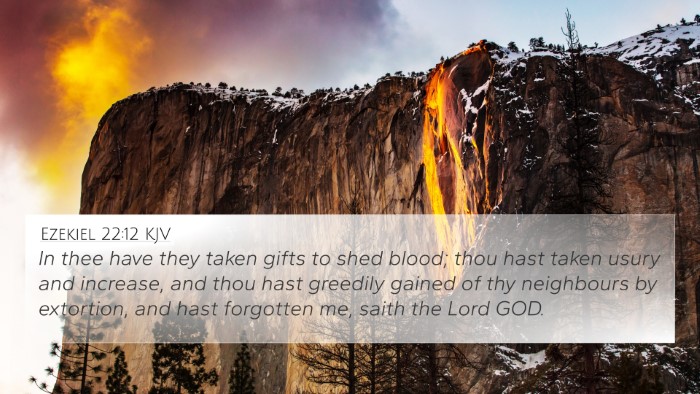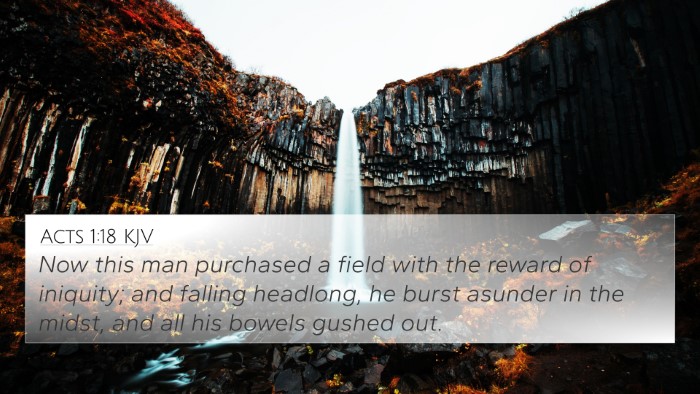Meaning and Interpretation of Deuteronomy 27:25
Deuteronomy 27:25 states: "Cursed be he that taketh reward to slay an innocent person. And all the people shall say, Amen." This verse is part of a passage where Moses outlines the blessings and curses that Israel will pronounce upon themselves as they enter the Promised Land. It emphasizes the seriousness of justice and the sanctity of life, particularly the life of the innocent.
Summary of Insights from Commentaries
- Matthew Henry:
Matthew Henry highlights how this curse underscores the importance of integrity in judicial matters. He notes that taking a bribe to kill an innocent person is a grievous sin that corrupts justice and leads to societal decay. Henry emphasizes that all are complicit in the communal response of "Amen," showing their collective responsibility for justice.
- Albert Barnes:
Albert Barnes elaborates on the implications of bribery in the administration of justice, arguing that it directly contradicts God's law. He points out that the act of killing an innocent person for financial gain is an abomination to God. Barnes stresses that this curse serves both as a warning and a deterrent against such corrupt practices.
- Adam Clarke:
Adam Clarke interprets this verse in light of the broader context of legal and moral obligations. He notes that the phrase "innocent person" points towards the divine protection of the vulnerable and the importance of ensuring justice is served without corruption. Clarke also argues that the pronouncement of "Amen" signifies a public acknowledgment of the gravity of such offenses.
Key Theological Concepts
This verse touches on several critical theological themes:
- Justice: Emphasizing the necessity for justice free of corruption.
- Accountability: The communal aspect of pronouncing curses highlights the shared responsibility of the community.
- Sanctity of Life: Protecting the innocent reflects God's concern for human life and morality.
Bible Verse Cross-References
This verse is interconnected with several other Scriptures:
- Exodus 23:7: "Keep thee far from a false matter; and the innocent and righteous slay thou not: for I will not justify the wicked."
- Proverbs 17:15: "He that justifieth the wicked, and he that condemneth the just, even they both are abomination to the Lord."
- Matthew 5:21-22: Jesus deepens the understanding of murder, showing the weight of even anger towards others.
- Luke 11:50-51: Jesus speaks of the blood of the prophets as a consequence of the unfaithfulness of the generations.
- 1 Peter 2:23: Reflects on Christ's example and his innocence as he faced wrongful persecution.
- Revelation 21:8: The fate of the unrepentant, including murderers and sorcerers.
- Jeremiah 22:3: God commands justice and righteousness, reflecting his values.
Connections Between Bible Verses
Deuteronomy 27:25 offers deep connections with both the Old and New Testaments:
- Old Testament Connections:
- The foundational laws given in the Pentateuch concerning justice.
- The prophetic calls for righteousness and justice, calling out the corruption of rulers.
- New Testament Parallels:
- Christ's teachings about the heart of the law focus heavily on justice, mercy, and integrity.
- The New Testament writers engage with the moral imperatives found in the law, extending them into principles of love and community.
Thematic Bible Verse Connections
Cross-referencing the themes present in Deuteronomy 27:25 offers various dimensions for study:
- Justice: The theme of justice is found throughout Scripture, adorned with guidelines on how to enact fairness and righteousness.
- Corruption: Numerous verses denounce the sin of corruption, especially among leaders or judges.
- Community Responsibility: Collective engagement in justice is a recurring theme; community plays a role in upholding God's standards.
Tools for Bible Cross-Referencing
To engage in comprehensive studies, various tools can aid in cross-referencing verses:
- Bible Concordance: A vital resource for locating specific words and their occurrences throughout the Bible.
- Bible Cross-Reference Guide: Facilitates understanding of cross-references between Scriptures.
- Comprehensive Bible Cross-Reference Materials: These texts compile connections between verses thematically and contextually.
Conclusion
Deuteronomy 27:25 serves as a profound reminder of God’s demand for justice, integrity, and communal standards of conduct. The curse pronounced for taking a bribe to kill an innocent underscores the severity with which God views corruption in society. Through the insights of various commentaries, connections to other Bible verses, and thematic explorations, we are equipped to understand the rich implications of this verse in a deeper spiritual context.

